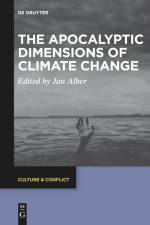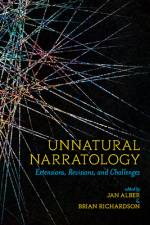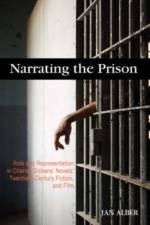von Jan Alber
106,00 €
This book investigates the ways in which Charles Dickens' mature fiction, prison novels of the twentieth century, and prison films narrate the prison. To begin with, this study illustrates how fictional narratives occasionally depart from the realities of prison life, and interprets these narrations of the prison against the foil of historical analyses of the experience of imprisonment in Britain and America. Second, this book addresses the significance of prison metaphors in novels and films, and uses them as starting points for new interpretations of the narratives of its corpus. Finally, this study investigates the ideological underpinnings of prison narratives by addressing the question of whether they generate cultural understandings of the legitimacy or illegitimacy of the prison. While Dickens' mature fiction primarily represents the prison experience in terms of the unjust suffering of many sympathetic inmates, prison narratives of the twentieth century tend to focus on one newcomer who is sent to prison because he committed a trivial crime and then suffers under a brutal system. And while the fate of this unique character is represented as being terrible and unjust, the attitude towards the mass of ordinary prisoners is complicit with the common view that 'real' criminals have to be imprisoned. Such prison narratives invite us to sympathize with the quasi-innocent prisoner-hero but do not allow us to empathize with the 'deviant' rest of the prison population and thus implicitly sanction the existence of prisons. These delimitations are linked to wider cultural demarcations: the newcomer is typically a member of the white, male, and heterosexual middle class, and has to go through a process of symbolic 'feminization' in prison that threatens his masculinity (violent and sadistic guards, 'homosexual' rapes and time in the 'hole' normally play an important role). The ill-treatment of this prisoner-hero is then usually countered by means of his escape so that the manliness of our hero and, by extension, the phallic power of the white middle class are restored. Such narratives do not address the actual situation in British and American prisons. Rather, they primarily present us with stories about the unjust victimization of 'innocent' members of the white and heterosexual middle class, and they additionally code coloured and homosexual inmates as 'real' criminals who belong where they are. Furthermore, Dickens's mature fiction focuses on 'negative' metaphors of imprisonment that describe the prison as a tomb, a cage, or in terms of hell. By means of these metaphors, which highlight the inmates' agony, Dickens condemns the prison system as such. Twentieth-century narratives, on the other hand, only critique discipline-based institutions but argue in favour of rehabilitative penal styles. More specifically, they describe the former by using 'negative' metaphors and the latter through positive ones that invite us to see the prison as a womb, a matrix of spiritual rebirth, a catalyst of intense friendship or as an 'academy'. Prison narratives of the twentieth century suggest that society primarily needs such reformative prisons for coloured and homosexual inmates.



